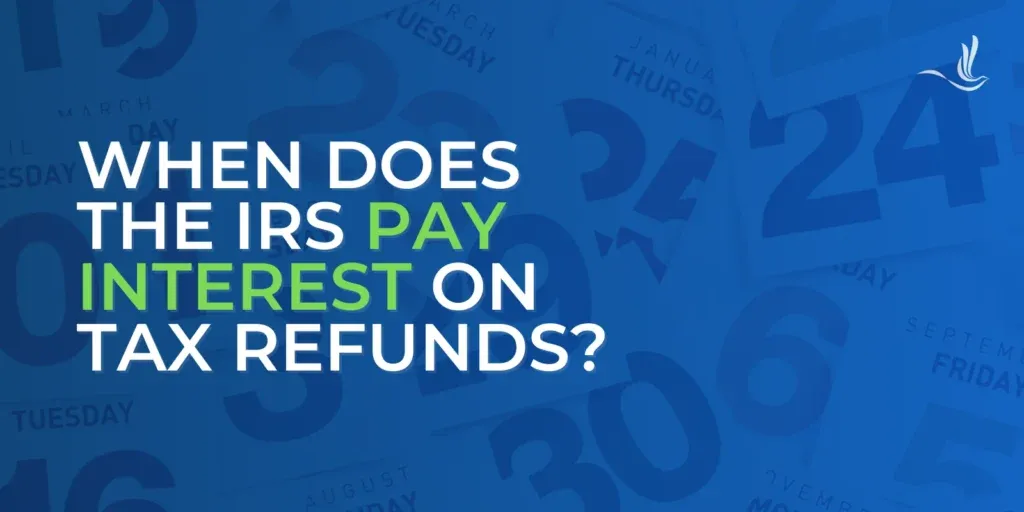The IRS typically processes tax refunds quickly, but in some cases, there can be delays. When these delays occur, taxpayers might wonder if they’re entitled to interest on their refund. The IRS does pay interest on tax refunds under specific circumstances. However, the rules governing when and how much interest is paid can be complex.
Understanding the Basics of Delayed Refunds
Interest on tax refunds is designed to compensate taxpayers for the time they are without the money they are owed. However, the IRS doesn’t start paying interest the moment your refund is delayed. There are specific timelines and conditions under which interest is paid.
Filing Deadline and Interest Start Date
For most taxpayers, the IRS must issue the refund within 45 days after the tax return is due, or the date the return was filed, whichever is later. If the IRS issues the refund after this 45-day window, it must pay interest on the refund. For example, if you filed your tax return by the typical deadline of April 15, the IRS has until May 30 to issue your refund without paying interest. If your refund is issued after May 30, interest will be added. If you file your tax return late, say on June 1, the IRS has until July 16 (45 days from June 1) to issue your refund without paying interest.
Amended Returns
If you file an amended return that results in an additional refund, the IRS typically has 45 days from the date the amended return is filed to issue the refund without paying interest. If the IRS takes longer than 45 days, interest will be paid on the additional refund amount. Imagine you filed your tax return on time, but later realized you missed a significant deduction. You file an amended return on August 1, resulting in an additional refund of $1,000. The IRS has until September 15 (45 days from August 1) to issue this additional refund.
Delays Caused by IRS Errors
If your refund is delayed due to an IRS error, and they correct the issue and issue a refund after the 45-day period, interest is paid from the original filing deadline or the date the return was filed (whichever is later) until the refund is issued.
Interest Rates on Refunds
The interest rate the IRS pays on delayed refunds is tied to the federal short-term interest rate, plus 3 percentage points. As of Q3 of 2024, the interest rate for overpayments of tax is 8% per year, compounded daily. The rate is adjusted quarterly and can vary depending on when the refund is issued. Importantly, interest paid to you by the IRS is considered taxable income. That said, you’ll need to report it on your next tax return.
Exceptions to Interest Payments
There are some situations where the IRS may not be required to pay interest on delayed refunds:
- Math Errors. If your tax return contains math errors or other discrepancies, the IRS may delay processing while it reviews your return. During this period, no interest is accrued.
- Injured Spouse Claims. If you file an injured spouse claim, your refund may be delayed while the IRS processes the claim. Interest on the delayed portion may or may not be paid, depending on how long the delay lasts and when the claim is resolved.
- Fraud or Identity Theft Investigations. Refunds delayed due to fraud or identity theft investigations typically do not accrue interest during the investigation period.
Tax Help for Those Waiting on a Tax Refund
In summary, the IRS does pay interest on tax refunds, but only under specific conditions. Generally, if the IRS takes longer than 45 days after the filing deadline or the date you filed your return, whichever is later, to issue your refund, you’ll receive interest on the amount owed. However, exceptions exist, and the exact timing and rate of interest depend on various factors. As always, if you have questions or concerns about a delayed refund, it’s a good idea to consult with a tax professional or reach out to the IRS directly for clarification. Optima Tax Relief is the nation’s leading tax resolution firm with over a decade of experience helping taxpayers with tough tax situations.
If You Need Tax Help, Contact Us Today for a Free Consultation
Publisher: Source link
